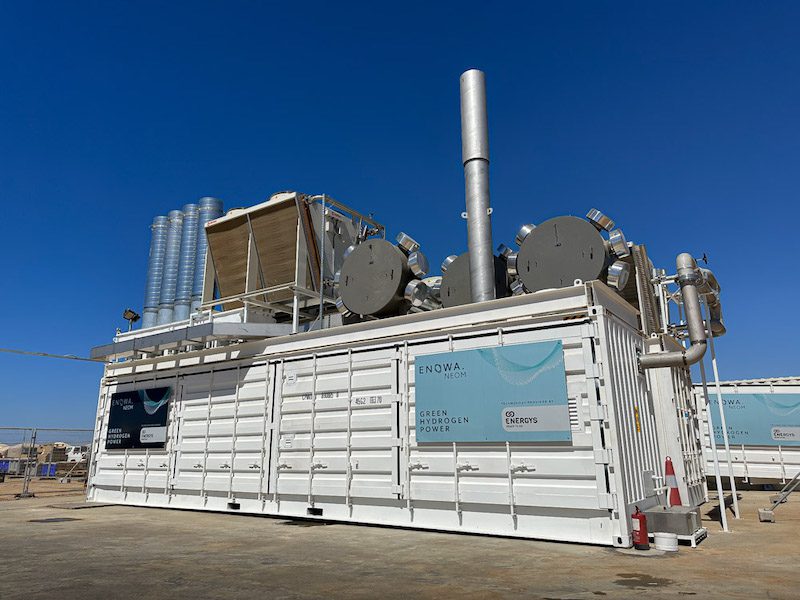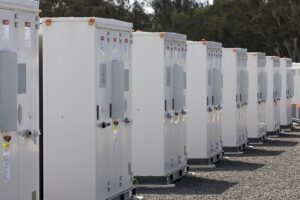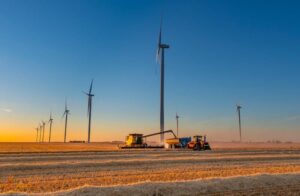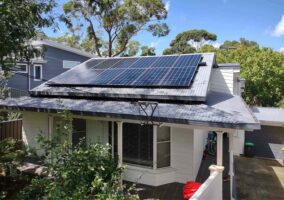The Saudi Arabian desert is about as inhospitable place for a water-based energy source possible, yet this is the venue for what is being claimed as a “world” first by an Australian hydrogen fuel cell company.
Energys Australia says it has rolled out a portable, 1.3 megawatt (MW) fuel cell to support the Extreme E electric vehicle rally, saying it is the first time a megawatt-scale fuel cell generator has been sent internationally to a remote location, and successfully used for off-grid use.
The device, dubbed the Powerhouse, was used for a week from March 10 in the Tabuk province in Saudi Arabia, providing charging for rally cars and supplying energy for the event, although only for selected periods during the week-long race.
“The commissioning site is a bare sandy desert with no roads, electricity, water or other basic infrastructure,” the company said in a statement.
“The event served as an ideal proving ground to demonstrate the rapid deployability and operation of the turn-key power system in harsh and challenging environments,” it said.

The hydrogen generator is made up of two modules housed in containers. These include hydrogen fuel cell banks, power electrics, control systems, process water recovery and balance of plant.
The company says the set-up is particularly useful for operations in remote areas such as mining and agriculture, and the modular approach is designed to allow it to quickly scale up but also keep the cost down.
The device was built at Energys’ factory in Mulgrave, Victoria, where the company builds stationary and mobile fuel cell power generators.
Energys counts Toyota and Linked Group among its customers, and the new facility in Mulgrave was designed to cater to rising demand for its products in and outside of Australia.
Hydrogen fuel cells: what are they good for?
Energys ramped up its facilities in Melbourne to cater to rising demand as the use cases for hydrogen fuel cells narrow in on energy generation.
The usefulness of hydrogen, green or otherwise, as a power source for vehicles is becoming less viable by the day as the sheer cost of powering small vehicles with the fuel proves to be too high to compete against pure electric, as reported by TheDriven.
But research and investment continues to flow into long distance travel, such as buses and trucks.
Earlier in March, NSW gave $64 million in grants for two electrolysers to bring down the price of hydrogen fuel for both of those vehicle types. Victoria has done the same, funding a range of projects from fuel cell buses to hydrogen-fuelled cremations.
And the technology has big backers: iron ore billionaire Andrew Forrest is backing a range of small green hydrogen projects, from Fabrum in New Zealand to attempts to make green steel.






